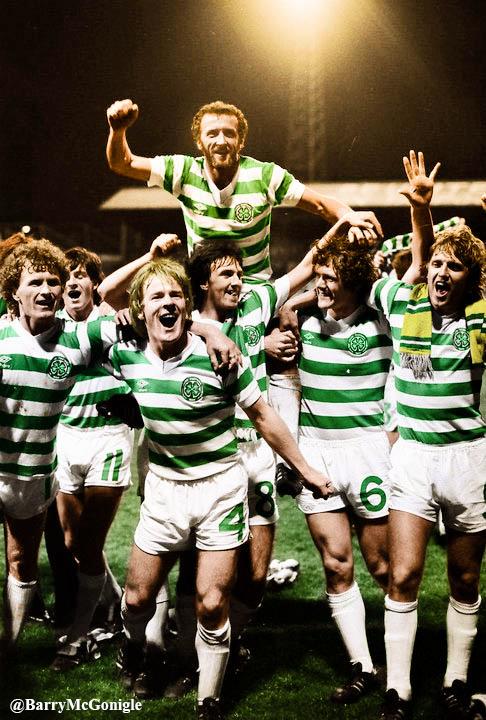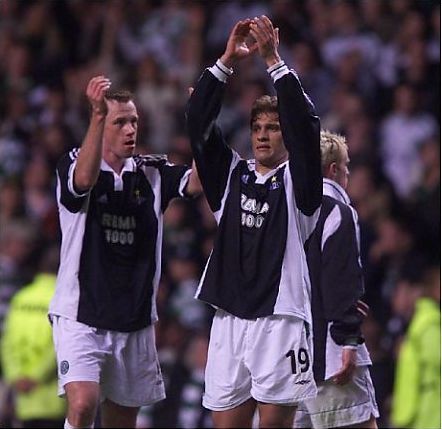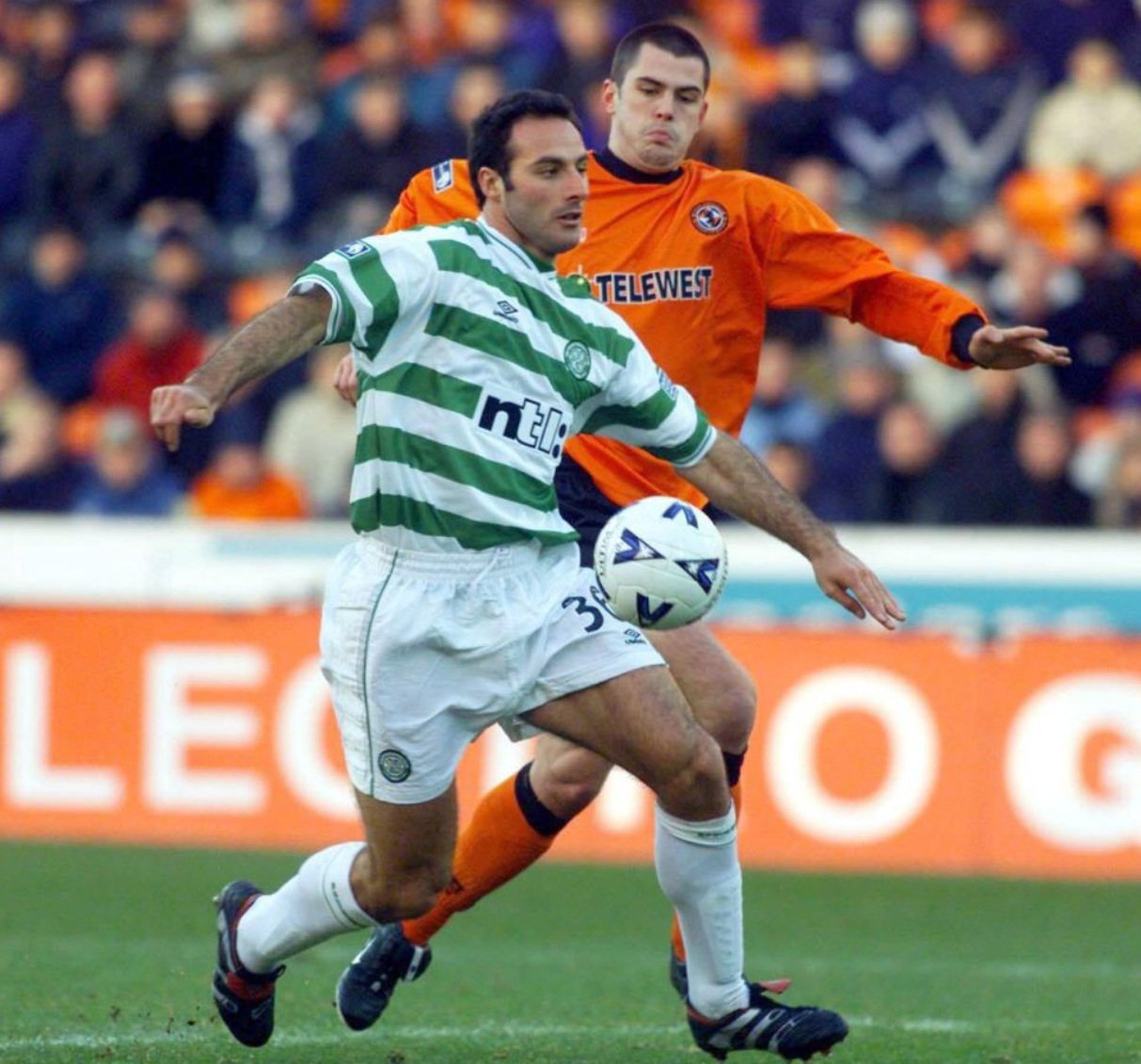The late months of 1980 were not a good time for Celtic. In October they crashed out of the European Cup Winners cup to the unknown Rumanians, Politechica Timisoara, and were thus denied a money spinning clash with English FA cup holders, West Ham United, in the next round.
In November, they had desperate month, losing 3-0 to Ibrox against Rangers at Ibrox, on the day when the new Broomloan stand was put in use for Celtic fans for the first time. If that wasn’t bad enough then Aberdeen and St Mirren came to Parkhead and won on league duty, whilst Dundee United also came to Paradise and destroyed Celtic by a 3-0 margin in a League Cup semi final second leg tie.
On December 27th Celtic travelled to Pittodrie and were soundly beaten by 4-1. Alex Ferguson’s Aberdeen side were now in their pomp with Leighton, Miller, McLeish, Strachan and McGhee all to the fore. The result that day wasn’t the most disappointing thing – it was the gulf in class on the park that was hard to accept, so far where Aberdeen in front in every area of the pitch.
I had my own problems to contend with at the time, as a teenager who was about to turn 15. I had been in very poor health. Every couple of weeks I would be laid low with sickness which remained undiagnosed. First it was thought to be food poisoning, then a virus, then an allergy. No one found a cure and the sickness rolled on. On the day of that Pittodrie thrashing, I was sick in more ways than one, as I listened to the radio in my bed of pain and sickness. The only plus point had been an astonishing show of loyalty, when the Celtic support had remained in the ground, defiant to the end. When Charlie Nicholas scored a consolation goal for Celtic in the last minute, it was reported that it was met by the biggest roar of the day.
There were mitigating circumstances for the poor form. Murdo MacLeod, such a vital player, had been laid low with long term injury. Roddy MacDonald, Davie Provan, Mike Conroy, Johnny Doyle and George McCluskey had all missed a number of games through various injuries. Young reserves, Mark Reid and John Weir, were called upon to bolster the team. In early January, Celtic lay third in the table behind Aberdeen and Rangers, respectively. As 1981 dawned it was thought unlikely that the Celts could mount a title challenge. Then things began to change…
In mid January I was rushed into hospital for an emergency operation. Turns out that the sickness I was suffering from was caused by Appendicitis and after a short procedure and a period of recuperation I was as right as rain. Ironically, as my fortunes improved, so did Celtic’s. The Bhoys found their form and within weeks they were back to their goal scoring best with the prolific striking pair of Frank McGarvey and Charlie Nicholas grabbing most of the headlines.
The crunch game of the season came against Rangers on February 21st. On a day of cold weather, with flurries of snow, Rangers couldn’t live with Celtic’s second half performance as the Celts won 3-1. Nicholas scored twice and was once again the subject of the media focus he craved so much but this game belonged to Tommy Burns. The Celtic midfield man ran the show and had at last found the consistency of form in his game that we all knew he was capable of.
Celtic had now embarked on a long unbeaten run and when Aberdeen travelled to Parkhead on March 31st, it was the Celts who now topped the table. Aberdeen were leading 1-0 with only minutes remaining when George McCluskey equalised. There were just seconds left when Celtic mounted a final assault on the Aberdeen goal for McCluskey to score again, only to be denied by a very controversial offside decision.
Still, Celtic kept on winning, and they recorded their first Ibrox victory in five years on April 18th, when the prodigious Nicholas, was their match winner again. The Ibrox capacity had been drastically reduced due to the building of the new Govan stand and those of us who celebrated Celtic’s win that day regard themselves as being fortunate to have been there to see it. For many of us it was the first time we had witnessed a Celtic victory on enemy territory.
Ibrox was bathed in spring sunshine that day but just four days later the temperatures plummeted for Celtic’s trip to Tannadice. The Celts needed just one point to clinch the title with two games remaining. On an emotional night of unseasonably cold weather, Celtic won 3-2 and those who were there still recount the celebrations to this day.
I would love to tell you I was with the happy throng of Celts inside Tannadice but, truth be told, I was not there. As Danny McGrain was leading the Celts to league success, it was my Grandmother’s 75th birthday and I was in Glasgow for a celebration meal in an Italian restaurant followed by Goldie Hawn, starring in Private Benjamin, in the old ABC cinema in Sauchiehall Street.
On the journey home I was desperate to find out the result. No social media or internet in those days so I only found out we were champions when Radio Scotland announced it, when I’d arrived back home, on the midnight news. It may have been a low key way to discover such a major sporting success but seldom have I been more delighted.
That league success of 1981 will always have a special place in my heart. The title was won by playing attacking football in the great Celtic tradition and that team contained many fine (and likeable) players such as McGrain, Burns, Provan, Nicholas and McGarvey.
Even after all those years, it still amuses me greatly, that my poor health and Celtic’s poor form were remedied at the same time.




